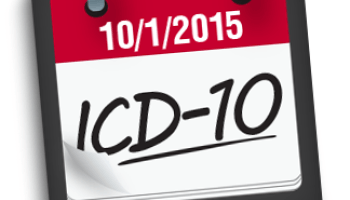The Oct. 1 implementation of the new ICD-10 coding system for reporting of patient diagnoses and procedures has reenergized the journey toward accurate medical record documentation — and two physicians from the Department of Neurology are among those at Keck Medicine of USC who are blazing the trail.
Benjamin Emanuel, DO, and May Kim-Tenser, MD, launched an effort to optimize their documentation about a year ago after discovering that the existing process did not reflect the actual severity of illnesses and mortality risks of their patients, affecting their quality indicators.
“We asked ourselves: How can we improve our documentation to reflect how sick our patients actually are?” Emanuel said. “We found that accurately documenting how the patient is actively being treated had a huge impact.”
Their work has paid off. The neurology team has improved all measurable indicators of quality, complications rate, severity of illness, risk-adjusted mortality, case mix index and the respective proper reimbursement for the hospital.
Proper documentation is a narrative, Kim-Tenser said.
“You’re describing everything that’s happening with the patient in real time and documenting what is actively being treated,” she said. “I changed my wording to reflect the severity of their current condition and documented how their problems would be treated.”
The neurology team’s improved documentation has led to an additional billing reimbursement of as much as $600,000 per month.
But the importance of proper documentation is not just financial, said Jeyson Flores, senior clinical documentation specialist for Keck Hospital of USC and USC Norris Cancer Hospital. Accurate documentation in the medical record will translate into proper coding and reporting that will produce meaningful clinical data that will truly represent the severity of illness, risk of mortality and complications rate of patients. It will also support decisions about the medical necessity and length of stay in the hospital, he said.
Clinical data is analyzed by entities that make the information publicly available to help consumers make decisions when choosing hospitals, physicians and health plans, Flores said. Additionally, properly reflecting a patient’s condition and the care they receive can protect physicians from lawsuits.
“Documentation drives everything,” Flores said. “If you already have good documentation, you won’t be affected by the ICD-10 transition.”
The focus on documentation comes as Keck Medicine of USC and other medical facilities across the nation prepare for the Oct. 1 implementation deadline of ICD-10, the latest edition of the International Classification of Diseases published by the World Health Organization as the standard diagnostic tool for epidemiology, health management and clinical purposes. ICD-10 will be used to report diagnoses in all clinical settings.
Keck Medicine of USC has begun information and training sessions. Under the old system, physicians may have been providing the patient with optimal care but that care was not accurately reflected in the patient’s medical record, Flores said.
The work in the Department of Neurology highlights the success of the Clinical Documentation Improvement Program and shows what can be achieved when physicians and other staff members commit to accurately reflecting patient conditions and care in the medical record, Flores said.
“Emanual and Kim-Tenser understood what needed to be done,” Flores said. “They were receptive. Having the support of administration and department leaders is crucial to documentation success.”
Keck Hospital of USC treats some of the most severely ill patients, making accurate documentation critical for patient care and accurate billing, said Katy Sullivan, clinical information manager.
“In the current health care climate, it is vitally important that our physicians, nurse practitioners and physician assistants accurately represent that severity of illness in their documentation so that we are able to be reimbursed fully for the care we provided,” Sullivan said. “Additionally, we need to ensure that our complication rate is not artificially high due to unclear documentation.”
— Douglas Morino


